42 Years After: Reflecting on the Life and Music of Bob Marley on His Death Anniversary
By Alabidun Shuaib AbdulRahman and Boniface Ihiasota, USA
Bob Marley was one of the most influential musicians of the 20th century, known for popularising reggae music and spreading Jamaican culture to the rest of the world.
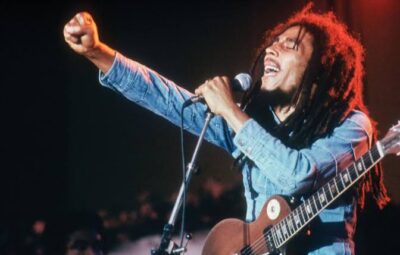
Born in Nine Mile, Jamaica on February 6th, 1945, Marley grew up in poverty and was forced to leave school at a young age. Despite these challenges, he would go on to become a global icon and a symbol of peace, love, and unity.
Marley’s musical career began in the early 1960s, when he formed a group called The Wailers with friends Peter Tosh and Bunny Livingston.
Their music was heavily influenced by Jamaican ska and rocksteady, but they soon began to incorporate elements of R&B, soul, and gospel into their sound.

In 1972, The Wailers signed a deal with Island Records, which would prove to be a turning point in Marley’s career.
Marley’s first album for Island Records, “Catch a Fire,” was released in 1973 and featured some of his most enduring songs, including “Stir It Up” and “Concrete Jungle.”
The album was a critical and commercial success, and helped to introduce Marley’s music to a wider audience.
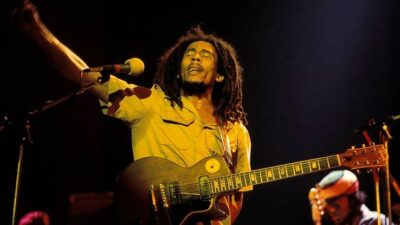
Over the next few years, Marley and The Wailers would release a string of classic albums, including “Burnin’,” “Natty Dread,” and “Rastaman Vibration.” These albums featured some of Marley’s most iconic songs, such as “I Shot the Sheriff,” “No Woman, No Cry,” and “One Love/People Get Ready.”
Marley’s music was deeply rooted in Jamaican culture and the Rastafarian religion, which he embraced later in his life.
His lyrics often addressed social and political issues, such as poverty, inequality, and injustice. He was a powerful advocate for peace and unity, and his music had a profound impact on people all over the world.
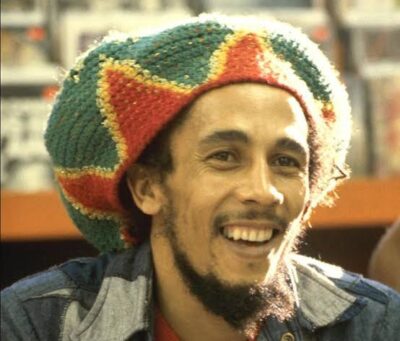
In 1977, Marley was diagnosed with cancer, but he continued to tour and record music until his death on May 11th, 1981. He was only 36 years old. Despite his short life, Marley’s music and message continue to inspire people around the world.
Bob Marley’s influence on popular music and culture cannot be overstated. He is widely regarded as one of the most important and influential musicians of the 20th century, and his legacy continues to live on today.
His music has been covered by countless artists and has been used in films, TV shows, and advertisements.
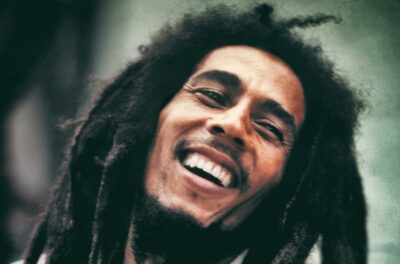
He was posthumously inducted into the Rock and Roll Hall of Fame in 1994, and in 2001 he was awarded a Grammy Lifetime Achievement Award.
As today marks 42 years of his demise, here are 42 unique things about Bob Marley:
1. Bob Marley was born in Nine Mile, Jamaica, on February 6, 1945.
2. His full name was Robert Nesta Marley, and he was the son of a Jamaican mother and a white father.
3. Bob Marley started playing music at a young age, and formed his first band, The Wailers, in 1963.
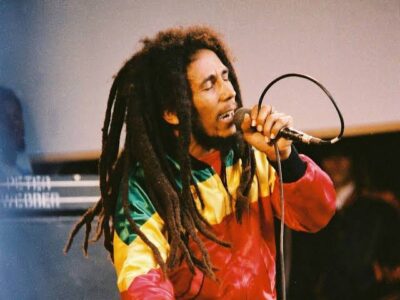
4. The Wailers were originally a ska band, but they later became known for their reggae music.
5. Bob Marley’s music was heavily influenced by Rastafarianism, a religious and cultural movement that originated in Jamaica.
6. Bob Marley was a devoted follower of Rastafarianism, and he often sang about its principles in his music.
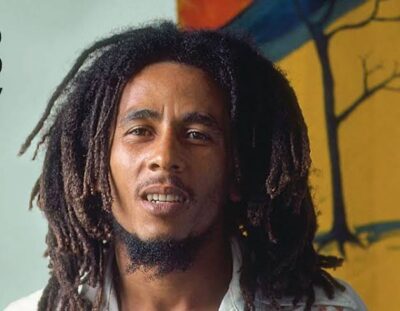
7. Some of Bob Marley’s most famous songs include “One Love,” “No Woman, No Cry,” “Redemption Song,” and “Get Up, Stand Up.”
8. Bob Marley’s music was known for its message of peace, love, and social justice.
9. In addition to his music career, Bob Marley was also an activist and a philanthropist.
10. Bob Marley was known for his distinctive dreadlocks hairstyle, which he wore throughout his life.
11. Bob Marley was married to Rita Marley, and they had three children together.
12. Bob Marley had several other children from different relationships.
13. Bob Marley was tragically killed by cancer on May 11, 1981, at the age of 36.
14. Bob Marley’s death was a great loss to the music world, and he is still widely regarded as one of the greatest musicians of all time.
15. Bob Marley’s music continues to inspire people around the world, and his message of love and unity remains as relevant as ever.
16. Bob Marley’s music has been covered by countless artists, including Eric Clapton, Lauryn Hill, and Bruno Mars.
17. Bob Marley’s music has also been featured in many movies, TV shows, and commercials.
18. Bob Marley’s famous song “One Love” was declared the song of the millennium by the BBC.
19. Bob Marley was posthumously inducted into the Rock and Roll Hall of Fame in 1994.
20. Bob Marley’s album “Legend” is one of the best-selling reggae albums of all time.
21. Bob Marley’s music has been described as a blend of African rhythms, Jamaican folk music, and American R&B.
22. Bob Marley was known for his powerful stage presence, and his live performances were legendary.
23. Bob Marley’s band, The Wailers, included some of the greatest musicians in reggae music, including Peter Tosh and Bunny Wailer.
24. Bob Marley’s music was heavily influenced by his upbringing in Jamaica, where poverty and social inequality were common.
25. Bob Marley was a vocal critic of the Jamaican government, and his music often addressed political and social issues.
26. Bob Marley’s music was embraced by people around the world, and he became a symbol of the struggle for social justice.
27. Bob Marley’s song “No Woman, No Cry” is often misinterpreted as being anti-women, but it is actually a message of comfort and reassurance to a woman who is going through a hard time.
28. Bob Marley was a talented songwriter, and he wrote most of his own music.
29. Bob Marley’s song “Redemption Song” is considered by many to be his masterpiece, and it is a powerful meditation on freedom and liberation.
30. He once opened for Bruce Springsteen during a concert in Germany.
31. Marley’s album Exodus was named Album of the Century by Time magazine in 1999.
32. Marley was known for his love of marijuana, which he often referred to as “the herb.”
33. He was also known for his love of Jamaican food, especially ackee and saltfish.
34. Marley once said that his music was “a message of truth and rights.”
35. He recorded over 70 songs during his career, many of which became hits.
36. Marley was once awarded the Peace Medal of the Third World by the United Nations.
37. He was also awarded Jamaica’s Order of Merit, the country’s fourth-highest honor.
38. He often wore the colors of the Ethiopian flag in his clothing and jewelry, a nod to the Rastafarian belief in the divinity of Ethiopian Emperor Haile Selassie.
39. Marley’s music gained international recognition in the 1970s, with albums like Catch a Fire and Burnin’.
40. He was known for his powerful, raspy voice and his ability to write catchy, memorable songs.
41. Marley’s music was often played at political rallies and protests around the world.
42. Marley’s father was a white British naval captain named Norval Sinclair Marley, and his mother was a Jamaican woman named Cedella Malcolm.
In addition to his musical achievements, Marley was also a powerful symbol of peace and unity. His message of love and harmony transcended race, religion, and nationality, and he remains a powerful symbol of hope and inspiration for people all over the world.
In tribute to Bob Marley, Excel Magazine’s Alabidun Shuaib AbdulRahman and Boniface Ihiasota remember his extraordinary talent, his commitment to social justice, and his unwavering dedication to spreading a message of love and unity. His music will continue to inspire generations to come, and his legacy will endure for many years to come. Rest in power, Bob Marley.










